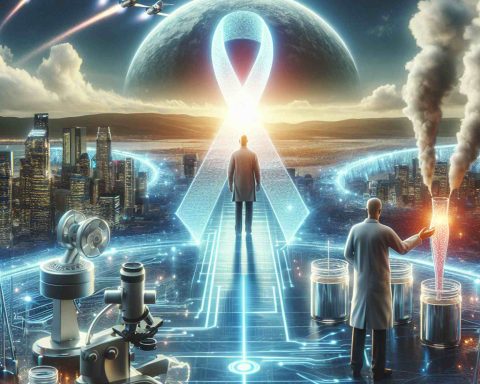The Surprising Reasons Behind Coffee-Induced Fatigue
Many people enjoy a cup of coffee to kickstart their day, but for some, it seems to have the opposite effect. While most associate caffeine with increased energy, certain individuals report feeling more tired post-sip. This phenomenon isn’t just a quirky anecdote; it has scientific backing.
Dr. Karan Rajan, a prominent gastroenterologist, recently shed light on this peculiar reaction through a viral TikTok video. He explained that our bodies respond differently to caffeine based on the presence of a liver enzyme called CYP1A2. This enzyme plays a crucial role in how quickly we metabolize caffeine. Fast metabolizers clear caffeine from their system quickly, which may lead to sudden post-caffeine fatigue as the stimulating effects wear off. Interestingly, a recent study highlighted that those with a slower variant of this enzyme may face an increased risk of kidney issues.
Dr. Rajan also touched upon caffeine tolerance, noting that regular drinkers might find themselves needing more coffee to achieve the same stimulating effects. This could lead to a tiring cycle of increased consumption and sleepless nights, further exacerbating exhaustion.
While some speculate a link between coffee-induced fatigue and ADHD, current research lacks concrete evidence. Embracing this understanding about our body’s unique response to caffeine may lead to more mindful coffee consumption.
Understanding the Broader Implications of Coffee-Induced Fatigue
The insights on coffee-induced fatigue extend beyond individual experiences, inviting a deeper examination of societal habits surrounding caffeine consumption. As coffee culture permeates daily life, its role in the global economy cannot be overstated. The coffee industry is valued at over $100 billion worldwide, and understanding consumer behavior is vital for its sustainability. If more individuals become aware of their unique biochemical responses to caffeine, this could lead to shifts in consumption patterns, potentially impacting demand and production.
Moreover, the relationship between caffeine and mental health warrants consideration. With rising concerns about anxiety and sleep disorders, the knowledge that caffeine can paradoxically cause fatigue may encourage consumers to seek alternatives that align better with their well-being. This awareness could spur a trend towards organic, low-caffeine, or caffeine-free beverages, reshaping the industry.
Environmentally, the coffee industry’s practices also demand attention. The increased demand for coffee often leads to unsustainable agricultural practices that threaten biodiversity and contribute to deforestation. As consumer habits shift due to a better understanding of caffeine’s effects, the push for environmentally friendly practices may gain momentum.
In summary, the implications of coffee-induced fatigue ripple through social behaviors, economic trends, and environmental practices, highlighting an urgent need for mindfulness in consumption.
Unlocking the Coffee Paradox: Why Your Caffeine Boost May Leave You Fatigued
Understanding Coffee-Induced Fatigue
For many, coffee serves as the daily ritual that heralds the start of a productive day. However, a curious paradox exists: for some individuals, coffee consumption leads to a surprising feeling of fatigue. This article delves into the reasons behind this phenomenon, based on scientific insights and expert opinions.
The Role of Genetic Variability
Central to understanding why coffee makes some people feel tired is the liver enzyme CYP1A2. This enzyme’s efficiency can vastly change how individuals metabolize caffeine. According to Dr. Karan Rajan, a well-known gastroenterologist, those who are fast metabolizers of caffeine experience a quicker exit of caffeine from their system, often resulting in sudden fatigue as the initial stimulating effects fade.
Conversely, individuals with a slower variant of this enzyme metabolize caffeine more slowly, potentially leading to prolonged effects and even complications such as kidney issues, as noted by recent research.
Caffeine Tolerance and Fatigue Cycles
Another important factor is caffeine tolerance. Regular coffee drinkers may find that over time, they need to consume larger quantities to achieve the same level of alertness. This dependency can create a vicious cycle: as caffeine intake increases, so too does the likelihood of sleepless nights, which ultimately leads to heightened feelings of fatigue.
Pros and Cons of Coffee Consumption
Pros:
– Increased alertness and concentration.
– Short-term relief from fatigue.
– Potential health benefits, such as a reduced risk of certain diseases when consumed in moderation.
Cons:
– Potential fatigue following the initial stimulating effects.
– Increased tolerance leading to higher consumption.
– Possible negative health impacts for those with specific genetic predispositions.
Current Research Landscape
While some speculate about a connection between coffee-induced fatigue and disorders like ADHD, current studies have yet to provide solid evidence supporting this claim. More rigorous research is needed to explore how individual differences in caffeine metabolism affect not only fatigue but also general cognitive function and mental health.
Mindful Coffee Consumption: Tips and Techniques
1. Monitor Your Intake: Keep track of how much coffee you consume daily and note your energy levels throughout the day. This can help identify your personal caffeine tolerance.
2. Experiment with Timing: Consider adjusting the timing of your coffee consumption. For instance, many find that cutting back on afternoon coffee helps improve nighttime sleep quality.
3. Opt for Quality: Choose high-quality, low-acid coffee, which may be easier on your digestive system and could reduce the chances of a fatigue crash.
4. Stay Hydrated: Caffeine can lead to dehydration, so ensure you drink plenty of water throughout the day.
The Future of Caffeine Research
As our understanding of individual responses to coffee continues to grow, we can expect innovations in personalized dietary recommendations. Advances in genetic testing could pave the way for tailored caffeine consumption guidelines that would allow individuals to enjoy their coffee without the risk of post-consumption fatigue.
For more insights on health and wellness, visit Healthline.
Conclusion
Understanding the complexities of how coffee affects our bodies can help individuals make more informed choices about their caffeine consumption. By acknowledging the genetic and lifestyle factors at play, we can harness the benefits of coffee while minimizing the risk of fatigue, leading to a more balanced and enjoyable coffee experience.








